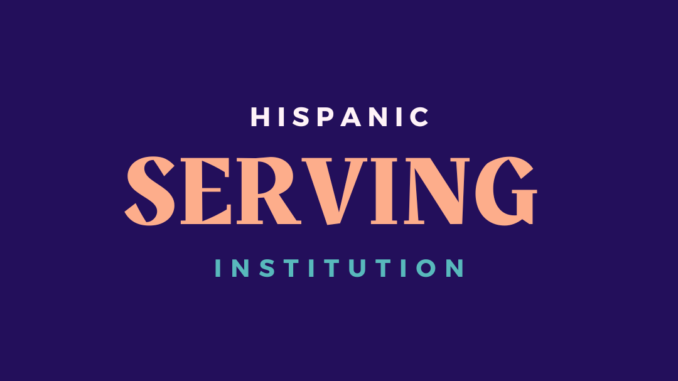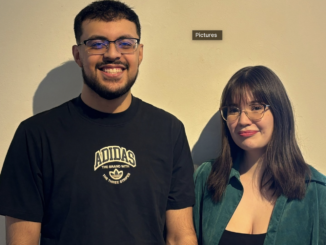
By Itzel Chavero
September not only marks the start of Hispanic Heritage Month, but also celebrates Dominican University being a Hispanic-Serving Institution. This allows Hispanic students to proudly honor their culture.
The second week of September featured many events such as homecoming festivities, masses, and panels with Hispanic and Catholic faculty members, not only from the university, but from other Texas institutions.
On Sept. 11, a panel with three speakers, one from Dominican, Claudia Herrera-Montero, assistant professor of theology, Monique Jimenez-Herrera, vice provost for academic initiatives and faculty success at St. Edwards University, and Arturo Chavez, associate vice president for mission and ministry and diversity, equity, and inclusion at University of the Incarnate World.
The panel, Celebrando Nuestra Identidad y Mision: Journeying as Catholic and Hispanic Serving Institutions, was held in Parmer Hall at 2:30 p.m. with around 25 audience members ranging from students to faculty members.
The event opened with a speech from Dominican’s president Glena Temple, who acknowledged the importance of being a Catholic HSI and expressed her gratefulness for the panelists’ ideas to improve and help students grow.
“We have a lot to celebrate, and we have a lot of great work, but we have ways to grow, and I am just grateful for the panelists for helping us think differently about the work and how to center the work,” she said. “Help to better serve our tremendous, wonderful students, who are the best assets and the reason we do all of this work.”
The goal of the panel is to integrate and celebrate each invited institution to talk about their Catholic mission while also embracing the diverse Hispanic culture that enriches communities and hear the experiences, challenges, and triumphs in navigating this dual identity.
Herrera-Montero discussed the type of students she encounters in her classrooms every day in Dominican. Most of whom are first generation students, commuters from the Chicago neighborhoods, and have parents or immediate family members who immigrated from different Latin American countries.
“This all correlates with our larger demographic, in which two-thirds of our students [at Dominican] come from Latinx communities,” she said. “Or the majority of our students come from unrepresented communities in the Chicago area.”
As a professor of Latina theology, Herrera-Montero sees an extension of her students that goes further from the classroom and sees their families, communities, and backgrounds.
While she sometimes admits it’s a challenge to clear up that any Hispanic ministry and theology can go beyond Hispanic audiences, she invites students to connect to this framework because Latin theology can serve anyone in their everyday lives.
Hispanic-Serving Institutions are not only celebrated by their diversity in students but also in their faculty. How institutions maintain plans and strategies to recruit and retain faculty, who align with the needs of their Hispanic student population, is essential.
Jimenez-Herrera discussed how her institution is able to retain Hispanic staff members without having them overlooked or overworked because of the mission they have with the institution and the community.
“We are taking an integrated approach to ensure that we support faculty from equipment to promotion [as well as] through the grants,” she said. “We offer faculty support services through many offices integrating instructional technology, curriculum, and library services.”
Arturo Chavez said diversity is not only needed in students but also with faculty members.
“Representation matters, language matters, and culture matters,” he said.
He stresses that HSI should keep an ongoing agenda of recruiting people of color regardless of discrimination.
Underlining what matters the most in HSI is not far from the considerations and wellbeing of their Hispanic students. In this type of institution, everything is made with a purpose, which is to integrate the identity of the Hispanic student population.
Bella Soto, a student majoring in biology, said she is glad to see events on campus that not only celebrate the Hispanic cultures, but also talk about the real issues and the importance of representation.
“I think one of the main reasons I decide to come to Dominican is because of the diversity,” she said. “I can walk around on campus and see someone that looks like me. [It] makes me feel like I belong [here].”
chavero@my.dom.edu



